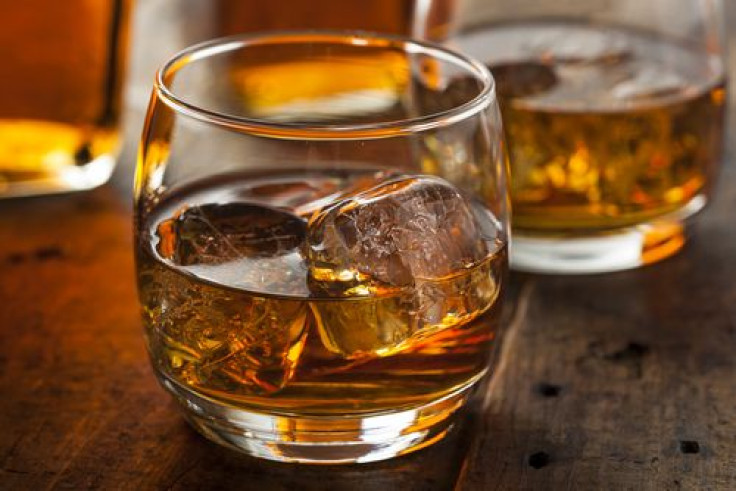America's Bourbon Demand Leads To Record Surge In Production: 3 Health Benefits of Whiskey

A new trend is hitting the bar scene across the U.S., including overseas, as more Americans have begun to trade their vodka, Scotch, and other alcoholic drinks for this native spirit: bourbon.
Production in Kentucky bourbon has surged, reaching its highest point since the 1970s, with distilleries filling 1.2 million barrels last year, and inventory topping five million barrels, according to the Kentucky Distillers’ Association. The liquor, which was once considered a Southern gentleman’s drink, has now become a “worldwide drink,” as distillers are putting new twists on recipes and flavors, attracting millenials.
"It's never been like this in my lifetime," Bill Samuels Jr., retiree as the executive at Maker's Mark, the brand started by his parents, told The Associated Press. "It doesn't feel like a fad. It feels like a legitimate trend." The distillers are beginning to overproduce their stores as a need to provide a big supply for a big demand for years to come. While the whiskey industry plummeted after a short-lived surge in the 1970s, leading companies to have a surplus without much demand, distillers are confident the reemerging trend is legitimate.
Distillers have worked around the clock to cater to millenials by constantly working on their premium small-batch offerings and infusing flavors in classic recipes. As a result, total revenues for bourbon and Tennessee whiskey reached $2.4 billion last year, a 10.2 percent increase, according to the Distilled Spirits Council. Last year, the two spirits claimed 34 percent of the U.S. whiskey market, surpassing Canadian, Scotch, blended, and Irish whiskey categories.
Companies are now meeting international demand from countries such as China, and those from the U.S. "We are busier than I ever could have imagined," Chris Morris, master distiller at Brown-Forman Corp., producer of Woodford Reserve and Old Forester bourbons, told AP. Usually, straight bourbon whiskey has to be aged at least two years in new charred oak barrels, but the average maturity is four years or older. The push for production and inventories means distillers are creating new jobs, attracting tourists to Kentucky, and creating a Bourbon revolution.
The rise in America’s reacquired taste of bourbon may be due to the industry putting a new spin on old brands that were once on “autopilot,” and also due to the rise in a more “health conscious” culture. Rather than choosing vodka or Scotch, Americans may soon ask their bartender for a "whiskey neat," for the sake of their health. When drunk responsibly, 2 to 3 ounces of whiskey a day can help give your body a health boost in three ways, from aiding in weight loss to regulating diabetes.
1. Weight Loss Aid
A glass of whiskey may help dieters achieve weight loss while drinking in moderation. A 1991 study published in The American Journal of Clinical Nutrition found alcohol increased total energy and decreased carbohydrate intake in men and women. Whiskey is an ideal choice of liquor, since it contains simple sugars that can quickly be broken down to be converted into energy for the body.
2. Cancer Prevention
Whiskey contains high levels of ellagic acid — an antioxidant compound that helps neutralize free radicals — the harmful by-products of cellular metabolism that cause diseases such as cancer and heart disease. The high levels of ellagic acid in whiskey could serve as an effective measure in preventing cancer. A 1998 study published in the European Journal of Clinical Nutrition found consumption of phenolic-containing alcoholic beverages, such as whiskey and wine, raised plasma total phenol content, and enhanced the antioxidant capacity of plasma. Moderate alcohol consumption and an increase in antioxidant intake can decrease the risk of coronary heart disease.
3. Regulate Diabetes
Whiskey has been shown to reduce the chances of diabetes by as much as 30 to 40 percent. A 2010 study published in Nutrition, Metabolism and Cardiovascular Diseases found alcohol consumption reduces the incidence of type 2 diabetes by improving the body’s ability to regulate insulin and glucose levels. However, binge drinking can actually increase the incidence.
It’s important to drink whiskey responsibly, as alcoholism and binge drinking can be detrimental to your overall health.



























